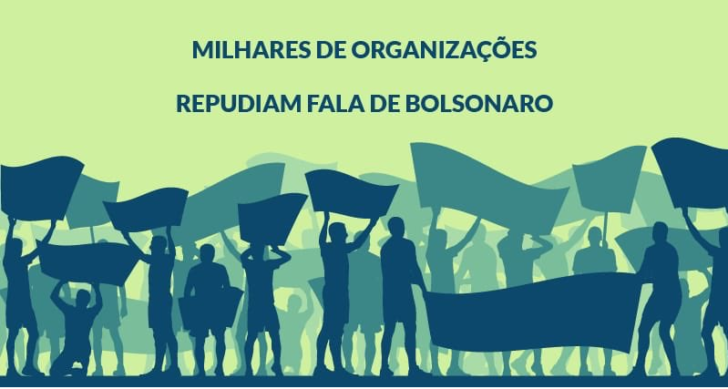Civil society organizations and social movements have a significant activism history in defense of the most diverse rights in Brazil. According to a study by the IPEA (Institute of Applied Economic Research), in 2017 there were more than 820,000 NGOs in the country working for better conditions in education and health, for individual liberties and equality in access to rights and information, for the freedom of speech, dignity at work, children and adolescents’ rights and environmental protection, among many other agendas.
Brazil is also internationally recognized due to its strong volunteer network, which articulates millions of citizens who devote part of their time to build a fairer and more egalitarian society, in which the poorest population has access to fundamental rights, not always guaranteed by the State. That work is also acknowledged as activism.
These activists’ work has been key in improving the country’s living conditions and in advancing in the achievement of rights implementation. Organizations and movements are strategic participants in the contribution for the development of public policies and important laws for the country, the overseeing of public power exercise from a financial point of view, the controlling of public policies execution, and the government programs. A dynamic, active and free civil society is one of the fundamental axes in democratic societies around the world in order to report abuses, defend achievements and make progress on rights.
Through the activist work from many entities, Brazil has overpowered laws such as the fight against racism and violence against women; public policies as the Brazilian unemployment insurance and financial aids for students; programs that fight deforestation and animal protection; the anti-smoking law and the Clean Record Act that emerged from the civil society initiative to fight corruption in the most diverse areas of the country.
Thus, [presidential candidate] Jair Bolsonaro’s (PSL) statement claiming that he “will end all activism in Brazil” is extremely serious. It is another threat to our democracy spread by this candidacy. On October 7, Bolsonaro expressed his desire to end civil society organizations’ work in his official statement via Internet, just after the Supreme Electoral Court confirmed that he would compete in the run-off that will take place on October 28.
Besides an affront to the Federal Constitution, which guarantees the rights of the association and assembly in Brazil, the statement reinforces the posture of excluding the organized civil society from open debates. This is an unacceptable threat to our freedom of action. The lives of thousands of citizen activists and the work of 820,000 organizations will not be the only ones affected. Brazilian democracy itself will be affected. And there is no democracy without the defense of rights.
More than ever, Brazil needs a government that is open to dialogue, which aims to lead the nation along with the most diverse sectors, respecting the difference of opinions and ideas about the proposals and directions for the country.
In no time, Brazilian population will return to the polls to elect their President for the following four years. The contempt for social movements and civil society entities expressed in this statement has to be considered by everyone when deciding their vote. Keeping civil society quiet, as Jair Bolsonaro claims, is a recurrent practice in authoritarian regimes. We cannot accept that in Brazil.
The complete list of organizations that signed this statement is available here.

